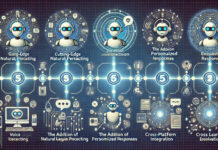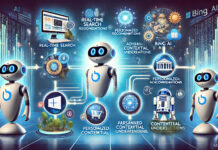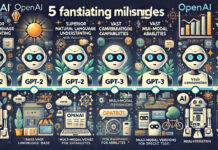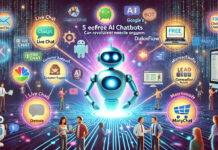Introduction
Artificial Intelligence (AI) tools for software engineers are revolutionizing the field of software development. These AI-powered tools are not only enhancing productivity but also unlocking new levels of creativity among developers. The integration of AI in software engineering is transforming traditional coding practices by automating repetitive tasks, optimizing code quality, and providing data-driven insights that drive innovation. Whether it’s generating code snippets, streamlining debugging processes, or improving collaboration, AI tools are making a profound impact on how software engineers work. This article delves into the diverse ways AI tools for software engineers are reshaping the industry, boosting efficiency, and fostering creative problem-solving. We’ll explore their significant contributions and the transformative effects they have on modern software development.
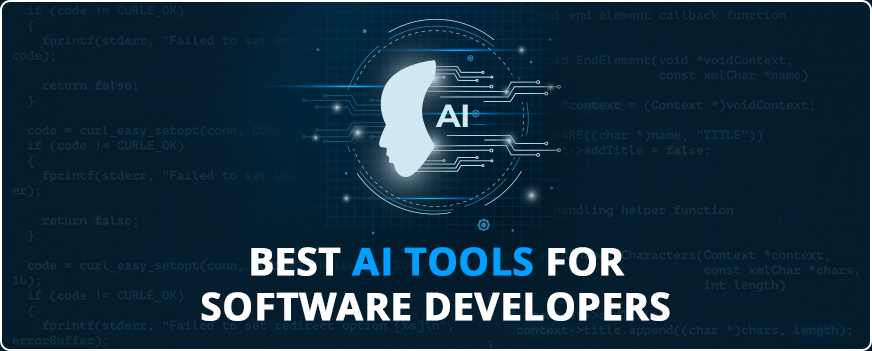
1. Automating Repetitive Tasks
AI tools for software engineers are exceptionally proficient at automating repetitive tasks, which traditionally consumed significant amounts of developer time. These tools streamline routine coding activities, such as generating boilerplate code or refactoring existing codebases, making the development process more efficient. By taking over these monotonous tasks, AI tools free up software engineers to focus on more intricate and creative aspects of their work. For example, tools like GitHub Copilot leverage AI to suggest relevant code snippets based on the context and comments, dramatically accelerating the coding process. This not only enhances productivity but also allows developers to allocate their time and energy towards solving complex problems and driving innovation.
2. Enhancing Code Quality
Maintaining high code quality is essential for the success of any software project. AI tools for software engineers play a pivotal role in this area by providing real-time code reviews and detecting potential bugs before they escalate into critical issues. Advanced tools such as DeepCode and CodeGuru utilize machine learning algorithms to analyze code patterns and offer actionable suggestions for improvement. These AI-driven tools evaluate the efficiency and maintainability of code, ensuring it meets high standards of functionality. By identifying potential flaws early and recommending enhancements, AI tools help prevent errors that could compromise software reliability. This proactive approach to code quality not only streamlines development processes but also contributes to building robust and dependable software solutions.

3. Accelerating Debugging and Testing
Debugging and testing are crucial phases in software development, yet they often consume a significant amount of time. AI tools for software engineers are transforming these processes by dramatically speeding up bug identification and vulnerability detection. Traditional debugging methods can be slow and labor-intensive, but AI-powered tools excel in quickly pinpointing issues, thus reducing the time required for these tasks. Automated testing frameworks, driven by AI, enhance the efficiency of testing procedures by autonomously generating and executing test cases. This not only increases the coverage of tests but also minimizes the need for manual intervention. As a result, AI tools enable engineers to deliver more reliable and robust software at a faster pace, enhancing overall development efficiency and product quality.
4. Facilitating Intelligent Code Search
Finding relevant code snippets or libraries within extensive codebases can often be a daunting task. AI tools are significantly simplifying this process through advanced intelligent code search functionalities. Platforms like Sourcegraph and Codota leverage AI to deliver precise search results and tailored recommendations. By analyzing code patterns and usage, these tools enable software engineers to quickly locate and reuse relevant code snippets, which enhances productivity and reduces the time spent on manual searches. Additionally, AI-driven code search helps maintain consistency across different projects by suggesting standardized code practices and libraries. This streamlining of the code discovery process not only accelerates development but also ensures a higher quality and uniformity in the codebase.
5. Supporting Advanced Code Generation
AI-driven code generation tools are pushing the boundaries of what’s possible in software development. By converting natural language descriptions into code, tools like OpenAI’s Codex allow developers to transform high-level concepts into executable code with remarkable ease. This advanced capability streamlines the coding process, reducing the time spent on routine tasks and allowing engineers to focus on more complex problem-solving and creative endeavors. With AI tools for software engineers, translating abstract ideas into functional code becomes more efficient, which accelerates development cycles and enhances productivity.
Moreover, the ability to generate code from natural language descriptions opens up new avenues for creativity. Engineers can now experiment with novel approaches and design patterns, exploring possibilities that were previously constrained by manual coding limitations. This innovation not only facilitates faster prototyping but also encourages developers to think outside the box, pushing the boundaries of software design and functionality.
6. Enhancing Collaboration and Communication
Effective collaboration and communication are crucial in software development, especially for distributed teams working across different time zones. AI tools for software engineers significantly enhance these aspects by streamlining project management and improving coordination. AI-powered project management platforms can track progress in real-time, automate task assignments, and generate insights into team performance. These tools facilitate seamless communication by offering features like automated meeting summaries, intelligent notifications, and task prioritization based on project needs. Enhanced collaboration through AI tools ensures that team members remain aligned with project goals, minimizes misunderstandings, and keeps projects on schedule. By integrating these AI solutions, software engineering teams can achieve greater efficiency and cohesion, driving project success and fostering a more collaborative work environment.
7. Driving Data-Driven Decision Making
Data-driven decision-making is transforming software engineering by providing engineers with powerful insights. AI tools for software engineers can analyze vast amounts of data quickly and efficiently. They sift through complex datasets to uncover patterns and trends that might not be immediately apparent. This capability allows engineers to make well-informed decisions about software design, feature prioritization, and user experience improvements.
By leveraging AI for data analysis, software engineers can align their development efforts more closely with user needs and business objectives. The ability to base decisions on concrete data rather than intuition helps optimize software performance and enhances overall project outcomes. Consequently, integrating AI tools into the decision-making process ensures that software development is both strategic and user-centric.

Conclusion
AI tools for software engineers are fundamentally transforming the field, driving significant improvements in both productivity and creativity. These tools excel at automating repetitive tasks, such as code generation and debugging, allowing engineers to focus on more complex and innovative aspects of development. Intelligent code search and advanced analytics further enhance efficiency by streamlining the coding process and providing valuable insights. As AI technology continues to evolve, its integration into software engineering practices will deepen, pushing the boundaries of what is possible. Embracing these AI tools not only boosts productivity but also opens up new avenues for creative exploration and innovation. The future of software development is increasingly intertwined with AI, promising exciting advancements and opportunities for engineers.
For further insights into the evolving landscape of software engineering and AI, stay tuned to our series on AI technologies and Opinions and Analyses.
FAQ
Q1: How do AI tools improve code quality? AI tools improve code quality by providing real-time code reviews, detecting potential bugs, and suggesting code improvements based on pattern analysis.
Q2: What are some examples of AI-driven code generation tools? Examples include GitHub Copilot, which suggests code snippets, and OpenAI’s Codex, which translates natural language descriptions into code.
Q3: How can AI tools enhance collaboration among software engineers? AI tools enhance collaboration by tracking project progress, assigning tasks, and providing insights into team performance, ensuring effective communication and coordination.
